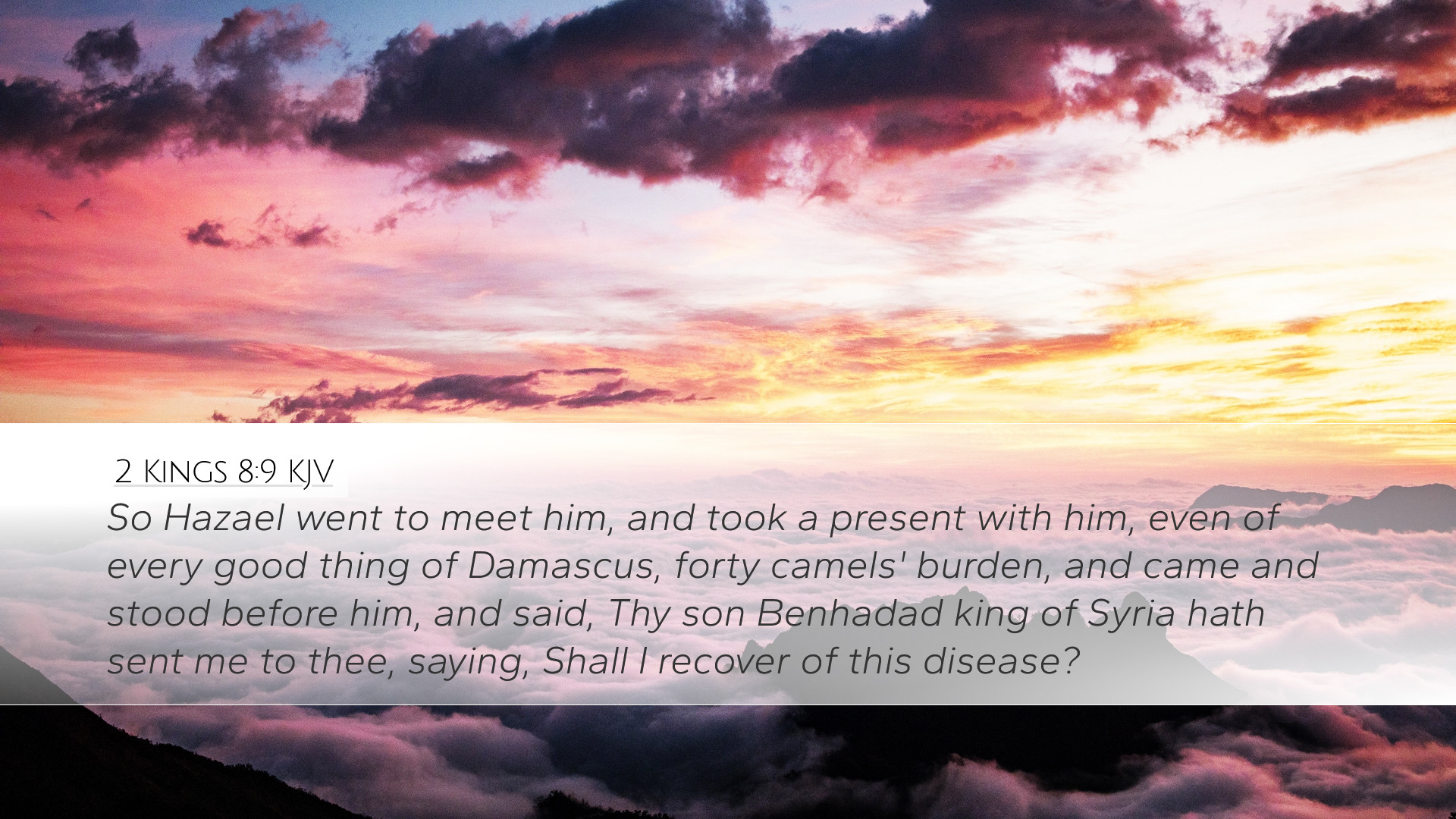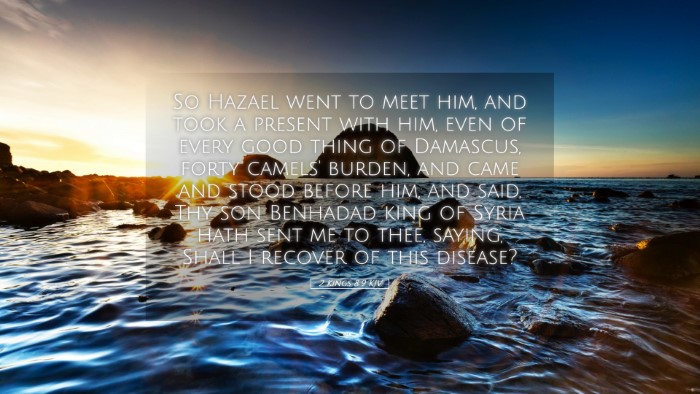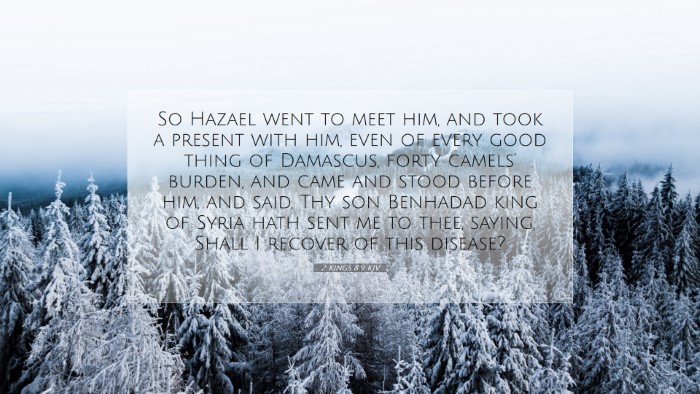Commentary on 2 Kings 8:9
Verse: "So Hazael went to meet with him, and took a present with him, even every good thing of Damascus, forty camels' burden, and came and stood before him, and said, Thy son Ben-hadad king of Syria hath sent me to thee, saying, Shall I recover of this disease?"
Introduction
This verse is pivotal in understanding the transition of power and the prophetic narrative that unfolds in the kingdom of Israel and Syria. Hazael, a servant of Ben-hadad, comes to seek counsel from King Jehoram of Judah regarding the fate of his master. The gifts he brings signify both respect and the ominous overtones of political maneuvering.
Analysis of Hazael's Character
Hazael, as discussed by Matthew Henry, embodies a complex blend of ambition and cunning. His approach to King Jehoram reflects a keen political insight—recognizing the power dynamics at play between Israel and Judah. The camels laden with gifts symbolize his intentions to curry favor and perhaps conceal his true ambitions.
Matthew Henry's Insights
-
Symbolism of the Gifts: The gifts are not merely tokens of goodwill; they are a strategic move. Hazael seeks to establish a façade of loyalty, while his true motives may involve usurping power.
-
Political Maneuvering: Henry draws attention to the importance of understanding the context of Hazael's visit. Seeking a favorable response from Jehoram could pave the way for Hazael's own aspirations.
The Role of Prophecy
According to Albert Barnes, the backdrop of this encounter lies in the prophecy concerning the fate of Israel. Hazael's visit must be seen in light of God's judgment upon Israel and His plan of utilizing Hazael as an instrument of that judgment. This presents a dual layer of interpretation: Hazael as both a servant and as a means of executing divine will.
Albert Barnes' Commentary
-
Prophetic Fulfillment: Barnes emphasizes the significance of God's sovereignty in using Hazael, a seemingly ordinary servant, to bring about profound change. The prophetic message given to Elisha about Hazael (2 Kings 8:7-15) contextualizes this event as a maneuver in God's larger plan for Israel.
-
Divine Judgment and Mercy: The profound irony in Hazael’s act of presenting gifts while harboring murderous intent is discussed, highlighting the complexities of divine judgment mixed with human actions.
Historical Context
Adam Clarke provides a thorough examination of the geopolitical context of this passage. The relationship between the kingdoms of Israel, Judah, and Syria is fraught with tension, intermingled with alliances and enmities that shape the narrative of the monarchy.
Adam Clarke's Observations
-
Geopolitical Alliances: Clarke notes that the gifts Hazael brings point to the customs of both respect and manipulation prevalent in ancient Near Eastern politics. This interaction is not simply personal but tied to national identities and tensions.
-
Military Implications: The mention of “forty camels’ burden” is significant, as it represents considerable wealth and the military might of Damascus under Ben-hadad. Hazael’s need to secure an alliance with Judah can indicate a precarious position against Jehoram’s forces.
Spiritual Reflection
The deeper spiritual implications of this passage encourage reflection on the nature of human ambition and divine providence. Each character in this verse embodies varying human responses to the uncertainty of life and the pursuit of power.
Applications for Today
-
Discernment in Leadership: The need for discernment in leadership is paramount. Jehoram must navigate Hazael's overtures while remaining aware of the potential treachery behind such politeness.
-
Divine Sovereignty: Believers are reminded of God’s control over historical events. Just as Hazael was used for divine purposes, so too can contemporary leaders be instruments of greater divine plans.
-
Integrity in Relationships: The motivations of gifts given to a leader can often mask ulterior motives. This calls for integrity and honesty in all interpersonal interactions, aware that appearances can be deceiving.
Conclusion
2 Kings 8:9 encapsulates critical themes of ambition, prophetic fulfillment, and divine sovereignty. The interplay of human action against a backdrop of divine purpose provides rich material for theological reflection. Leaders, students, and scholars alike can glean valuable insights from this encounter, navigating the complexities of power dynamics while trusting in God’s overarching plan.


